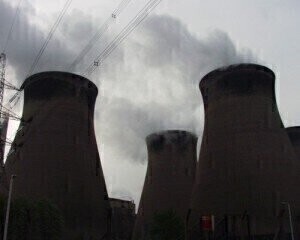Fuel for Thought
Mixed Fortunes for Nuclear Power in the European Union
Apr 26 2023
Germany's decision to shut down its three remaining nuclear power plants and Finland's initiation of Europe's most powerful nuclear reactor reflect the European Union's mixed fortunes regarding nuclear power.
On April 15, Germany began winding down its remaining nuclear power plants as part of its long-planned transition towards renewable energy, a move that has been met with both praise from environmentalists and criticism from nuclear power advocates. While Germany aims to become carbon neutral by 2045, its short-term energy needs will require the country to rely more heavily on polluting coal and natural gas. Critics argue that Germany's decision could hinder the progress of nuclear power as a clean and reliable alternative to fossil fuels.
However, German Environment Minister Steffi Lemke maintains that a nuclear renaissance is a myth, citing data that atomic energy's share of global electricity production is shrinking. Building new nuclear plants in Europe, such as the Hinkley Point C in Britain, has faced significant delays and cost overruns. Lemke argues that funds spent on maintaining aging reactors or building new ones would be better spent on installing cheap renewables.
In contrast, Finland's much-delayed and costly new nuclear reactor, Olkiluoto 3, with a 1,600-megawatt capacity, has now completed a year-long test phase and started regular output. This development boosts the country's electricity self-sufficiency and aids in achieving its carbon neutrality targets. The Olkiluoto 3 reactor is the first new-generation EPR (European Pressurised Reactor) plant to go online in Europe.
The conservative National Coalition Party (NCP), which won Finland's general election on April 2, plans to further increase the share of energy derived from nuclear power. NCP leader Petteri Orpo, Finland's likely new prime minister, stated that the new cabinet should make nuclear power "the cornerstone of the government's energy policy".
The divergent paths taken by Germany and Finland regarding nuclear power reflect the broader debate in the EU regarding the role of nuclear energy in addressing climate change and energy security. While Germany's shutdown of its nuclear plants raises concerns about the future of nuclear power in Europe, Finland's successful launch of its new reactor showcases the potential for nuclear energy to contribute to the region's energy mix.
As Europe grapples with the dual challenges of climate change and energy security, the debate surrounding the role of nuclear power will likely continue. While some argue that nuclear power is a safe and effective means of curbing greenhouse gas emissions, others contend that investment in renewable energy sources is a more sustainable and cost-effective solution. The differing approaches taken by Germany and Finland exemplify the complex and contentious nature of this debate, highlighting the need for continued dialogue and analysis to determine the most appropriate path forward for European energy policy.
Digital Edition
PIN 25.3 June/July
June 2024
Analytical Instrumentation - Recent Advances In Various Bench Scale Accelerated Oxidative Testing Methods For Fuels - Petrochemical Industry: Anton Paar Solutions Streamline Processes, Reduce H...
View all digital editions
Events
Jul 30 2024 Jakarta, Indonesia
Jul 30 2024 Jakarta, Indonesia
China Energy Summit & Exhibition
Jul 31 2024 Beijing, China
Jul 31 2024 Chengdu, China
Aug 05 2024 Moon Township, PA, USA


















